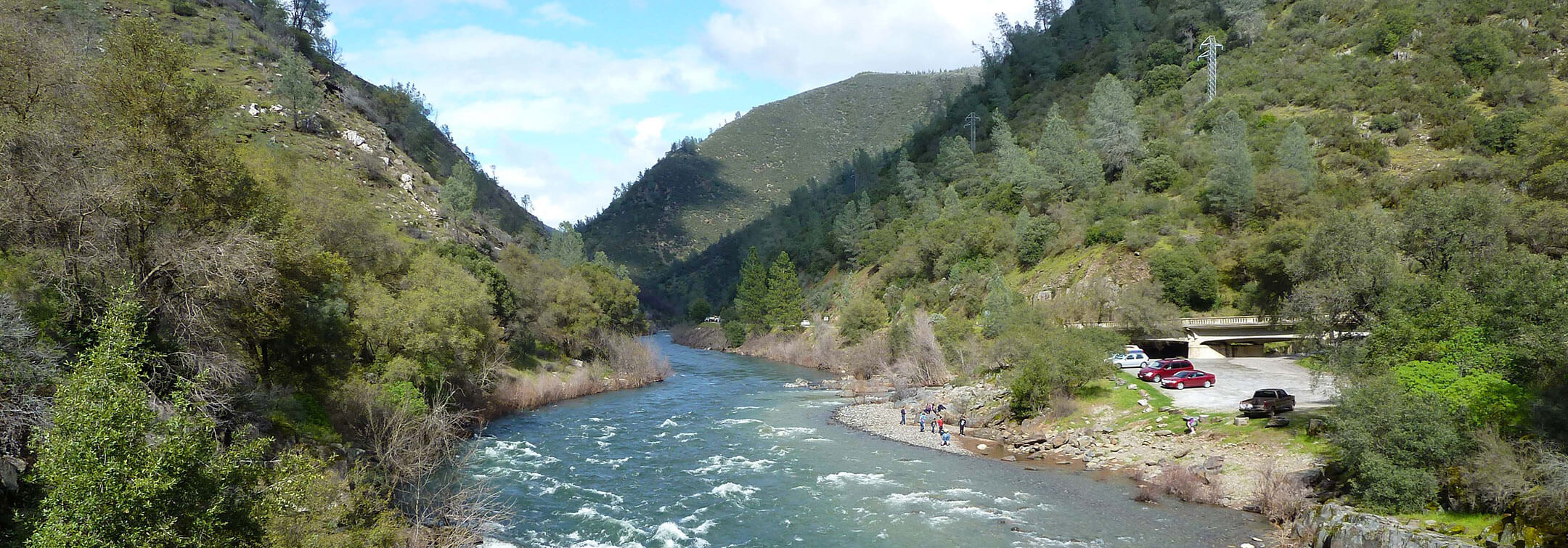There’s something to be said for a getaway that soothes the soul. A place where the grind back home quickly fades, and your biggest decision is whether to pack the fishing rod or load up the mountain bikes. A place where choosing between lunch in town or a picnic along the river is the heaviest lift you’ll do all day. Yes, this mythical land exists, and it’s closer than you think.
Mariposa County is an easy escape where small town nice meets Gold Rush history, all tucked into a setting that combines rolling foothills, national forests and dramatic canyons. Effortless views, great food, ghost towns that few have visited…the opportunities to relax and explore are endless. The best part? Three days and two nights in Mariposa County gets you well on your way.
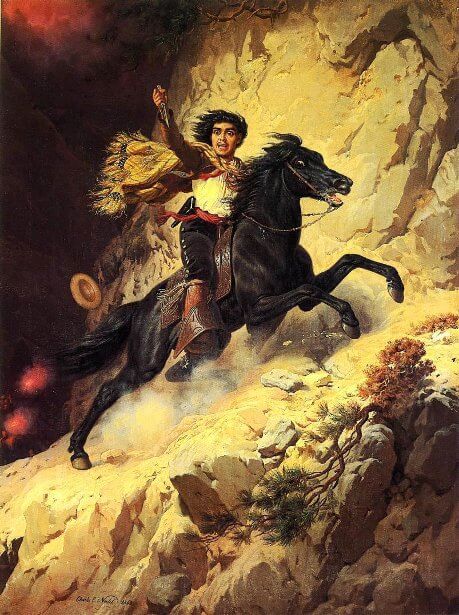
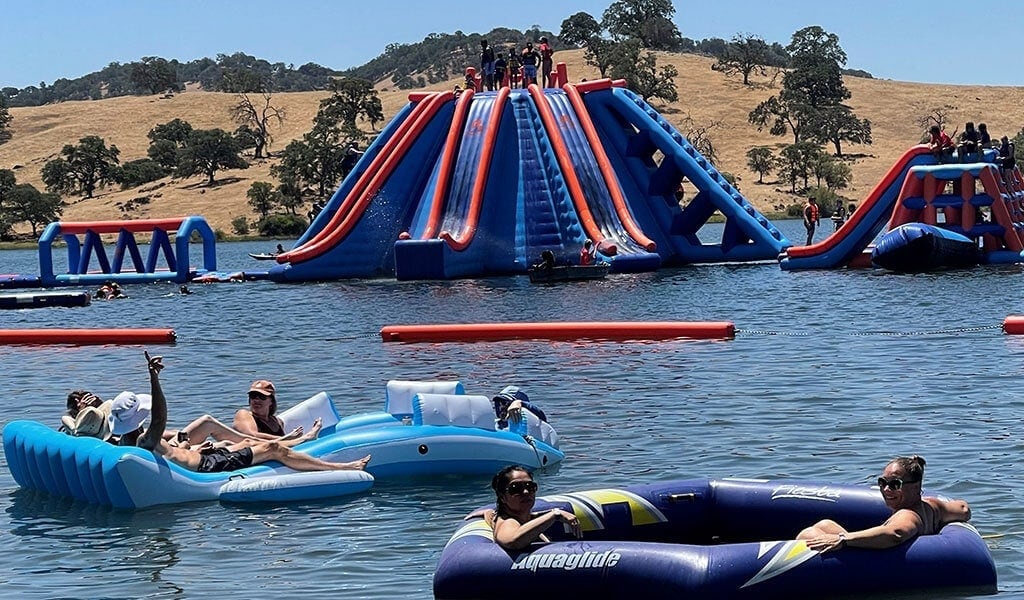
Pioneers, Boats & Ghosts
The first whistle-stops on your Mariposa County tour are separated by just a flick of the fishing lure. From the hideout of bandit-hero Joaquin Murrieta to water sports and tales of Gold Rush grit, an authentic Mother Lode experience awaits.
Hornitos
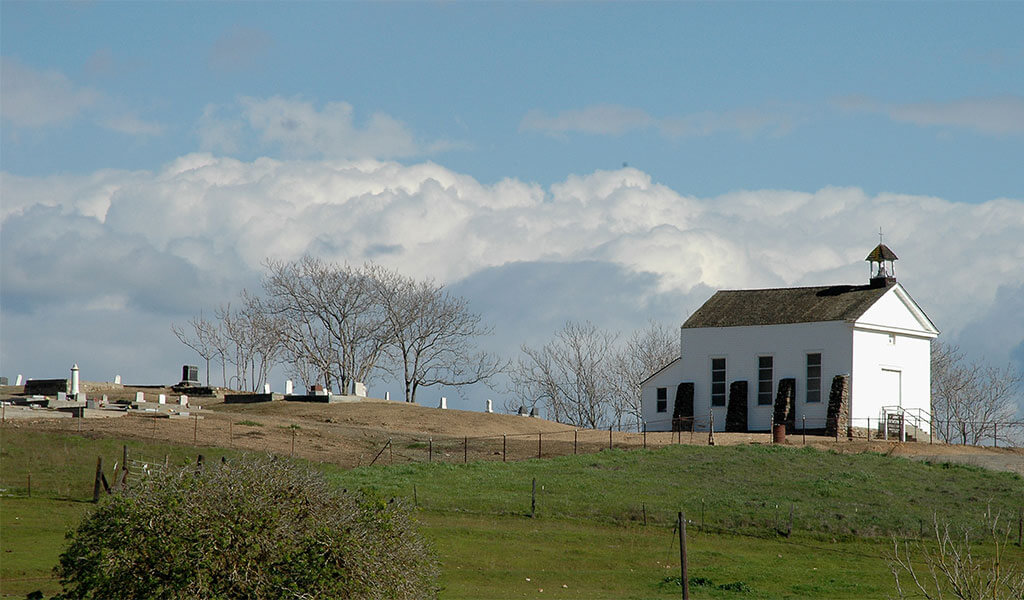
Located 2.5 hours from the San Francisco Bay Area, Hornitos is the intriguing opening chapter to the fabled Gold Rush tale of Mariposa County. Here, at an elevation of 843 feet, the Sierra foothills begin their climb like a clapboard rollercoaster and the Old West ruins of Hornitos provide this unique “ghost” town (population +/- 50) with an otherworldly vibe. Let your imagination run wild and envision what life was like here in the 1850’s when 15,000 fortune-seekers called Hornitos home, and bandit-hero Joaquin Murrieta held court at Rosie’s Fandango Hall.
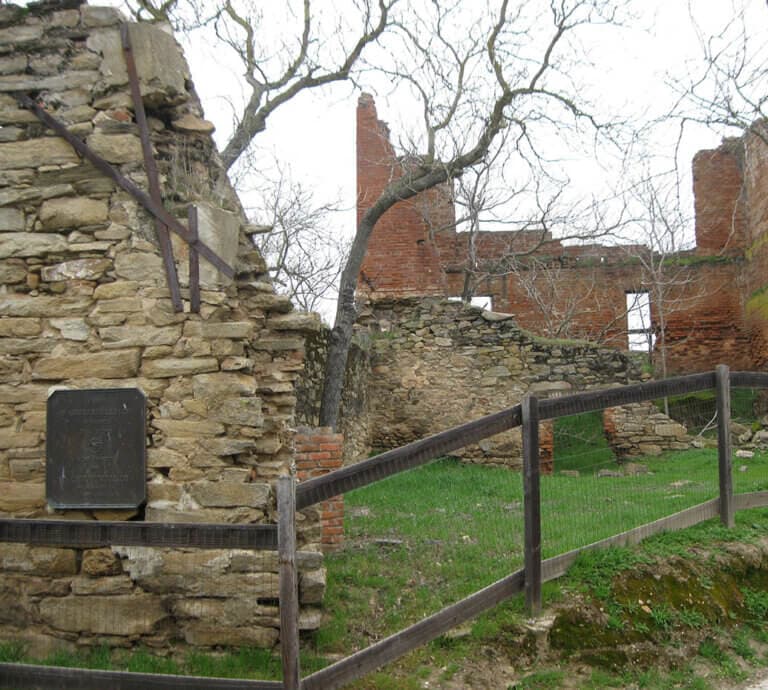
Things to Do
Hornitos is the perfect initial stop where visitors can stretch their legs and wander to discover the town’s numerous historical markers. Yesteryear fills the air as there are (quite refreshingly) none of the ever-present chain stores or fast-food joints to confuse the vintage mood. Biking the lightly-used country roads surrounded by austere hills is another favorite pastime, especially when they green up in winter and washes of wildflowers pop in spring. Photographers love Hornitos for its tumbledown brick buildings such as the Ghirardelli Store (yes, of chocolate fame) and other artifacts of the American West.
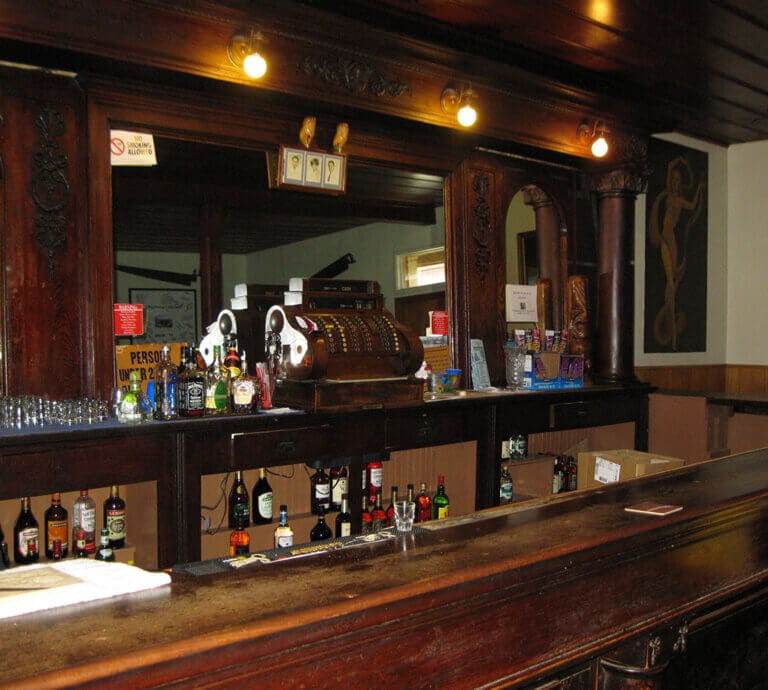
With no restaurants in town, Hornitos is BYOP — bring your own picnic. Set up shop at the park along the main square, or grab some Mexican from the Oasis Taco Truck to enjoy in town. The Plaza Bar — once a butcher shop in the 1850’s — has been run by the Ortiz family since 1948. Pull up a barstool and hear local tales, but be sure to check hours — like everything in Hornitos, it operates to the beat of its own drum.
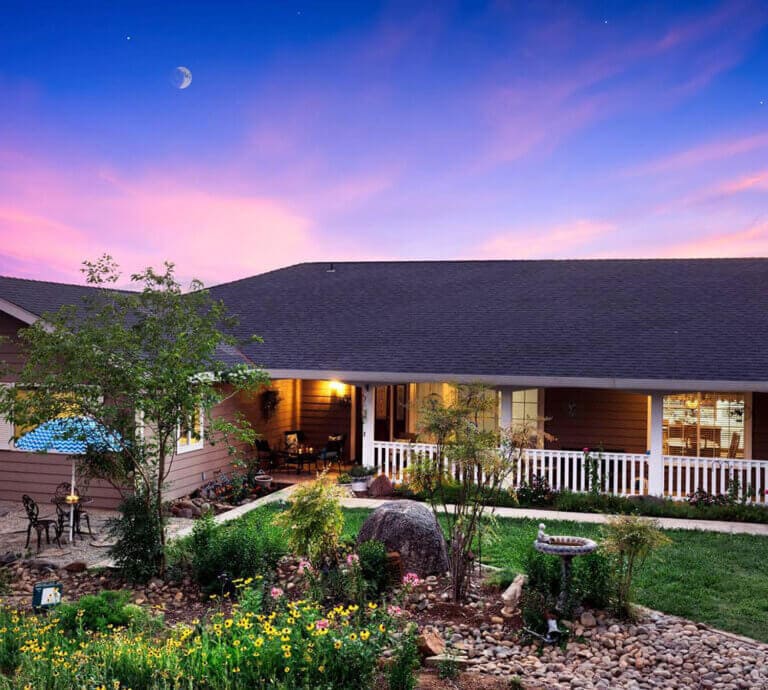
True to its “ghost” town status, there are no accommodations in Hornitos proper but comfortable vacation rentals can be found nearby in the area around Catheys Valley.
Lake McClure & Lake McSwain
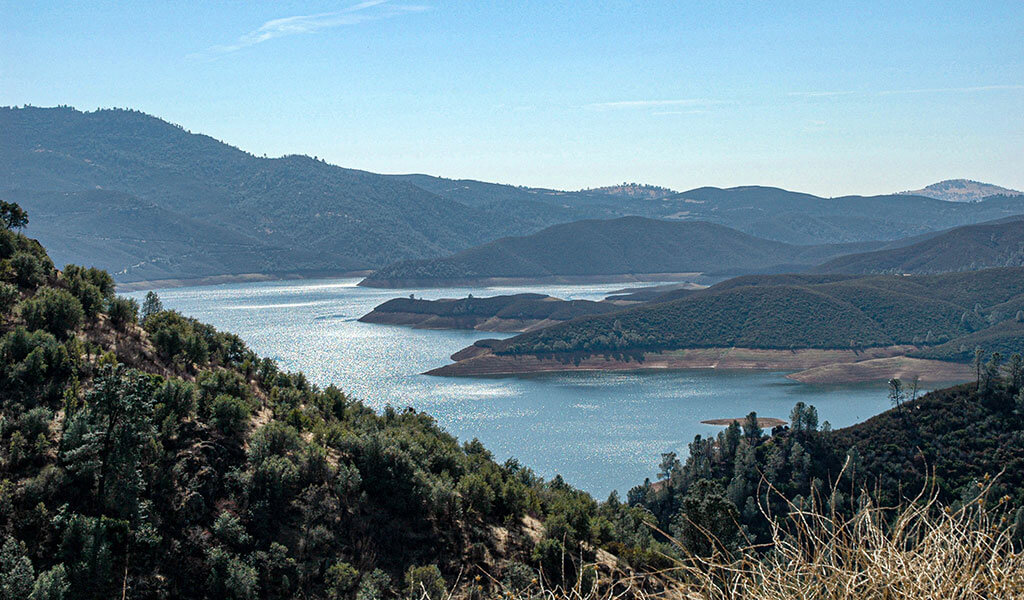
Just a half-hour from Hornitos sit the placid waters of Lake McClure and Lake McSwain. Fed by the Merced River after its long journey from the Yosemite High Country, these twin gems are separated by the Exchequer Dam and offer a range of recreation and camping opportunities surrounded by the oak-studded foothills of northwest Mariposa County.
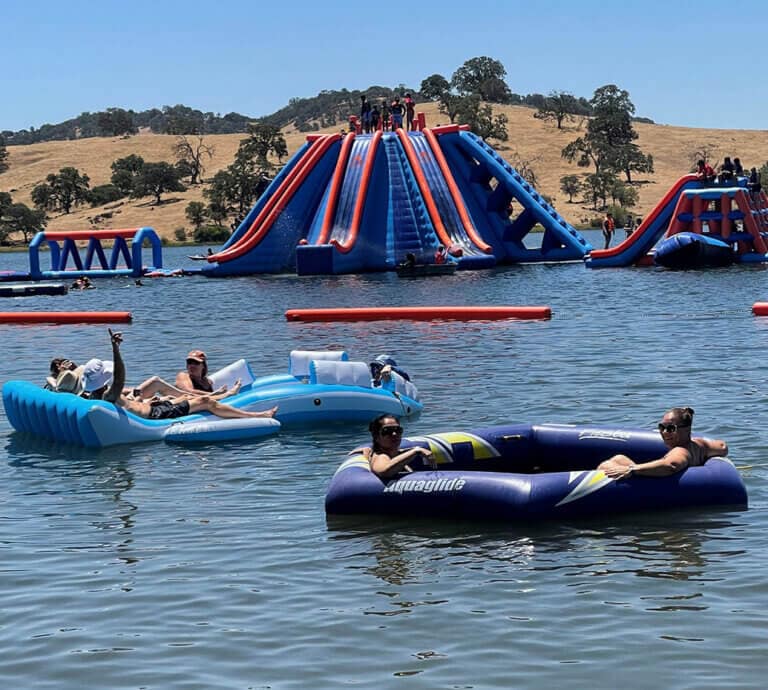
These sibling waterways indeed rival when it comes to recreation. Horseshoe-shaped Lake McClure boasts 80 miles of shoreline where fishing, kayaking, sailing, water skiing and jet skiing make for a boatload of fun. The spunky little sister Lake McSwain is known for fishing, including the annual Fall Trout Derby, not to mention the summer attraction Splash-N-Dash Aqua Park — a floating obstacle course that challenges kids of all ages. For the landlubbers in your group, bring the mountain bikes and enjoy some top drops at Exchequer Mountain Bike Park on the northwest shore of Lake McClure.
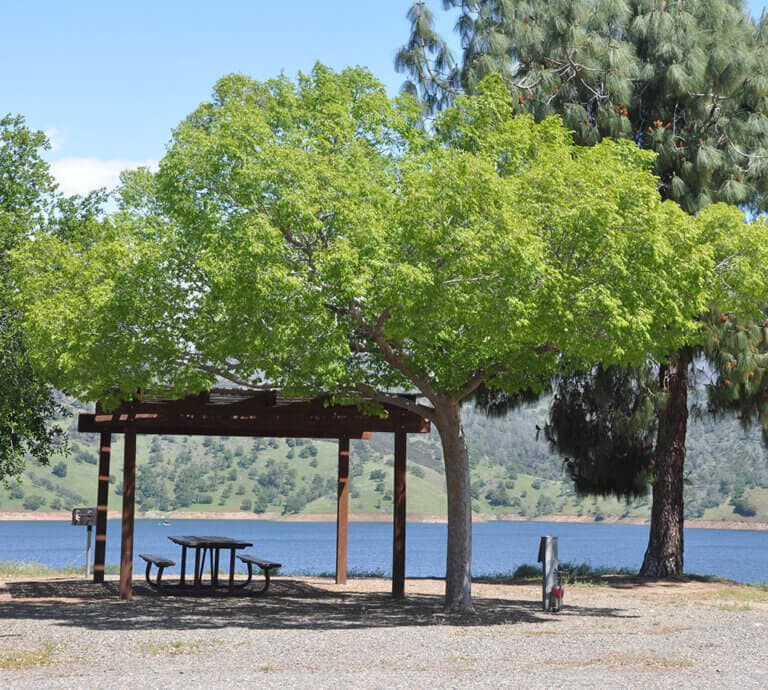
Camping is the name of the game at Lake McClure & Lake McSwain. With five unique lakeside campgrounds, over 500 sites, as well as private cabins that sleep the whole family there is plenty of room for tents and Sprinters alike. Lean back in your camp chair and let the tranquil Mariposa night sky twinkle overhead. Another nearby campground is along the shores of the underwater ghost town of Bagby where the Merced River feeds Lake McClure. Submerged with the building of the dam, Bagby was once a Gold Rush enclave and prominent stop on the Yosemite Valley Railroad. Today, when the water is low, its ruins are revealed.
The Reel Deel Market & Cafe at the Lake McSwain Marina offers up a tasty menu of beach-worthy delicacies such as the “Triple B” Breakfast Burrito, jalapeño popper dogs, western bbq bacon burgers and garlic parmesan fries. Open weekends only, April through October.
Coulterville
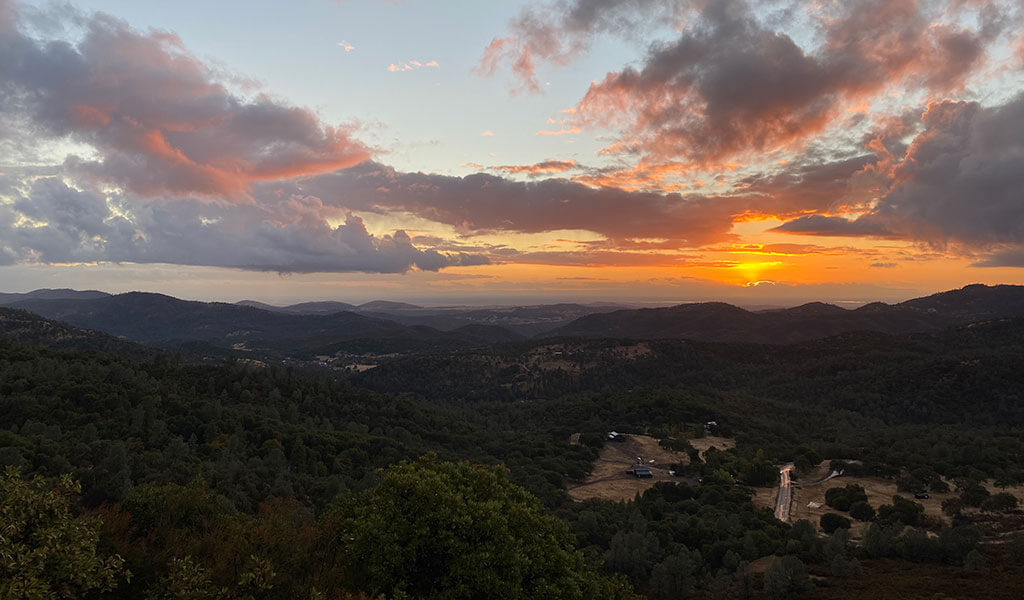
Climbing 30 miles from Lake McClure to an elevation of 1,699 feet, the surprising little town of Coulterville is like dipping your Sierra cup into the river for a drink and coming up with a shiny gold nugget. Boasting 40 historic Gold Rush buildings, Coulterville is quite literally a portal to California’s pioneer past but its reputation continues to impress today — the residents of Coulterville received the 2022 Reader’s Digest Award for Nicest Place In America. Small town nice, indeed.
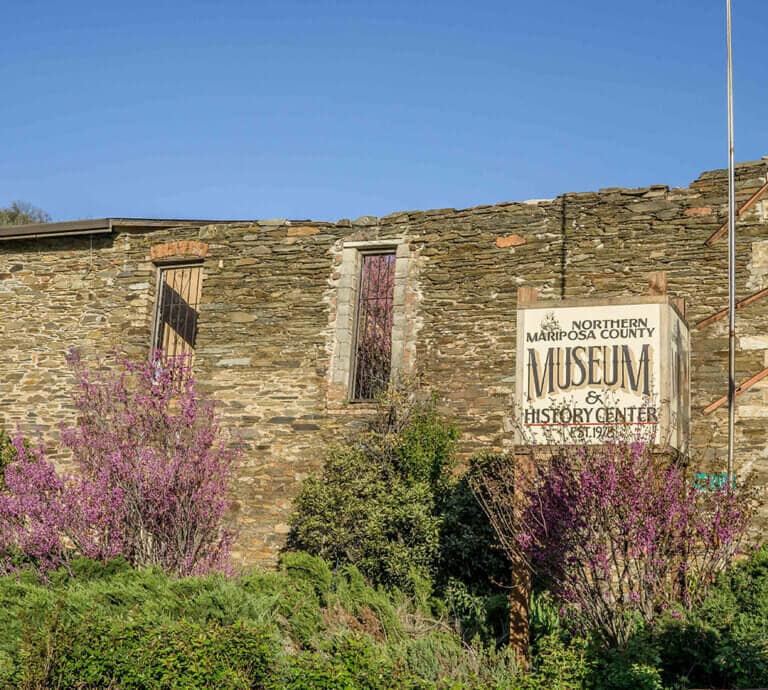
The wonderful thing about Coulterville is that all of its activities are so close together. Park the car and git along for the Coulterville self guided walking tour, or take a deeper dive into its fascinating origin story at the Northern Mariposa County History Center. Be sure to check out the Sun Sun Wo Store — a living reminder that Coulterville was once the Mother Lode’s largest Chinatown during the Gold Rush, and part of the important legacy of AAPI contributions to Yosemite Mariposa.
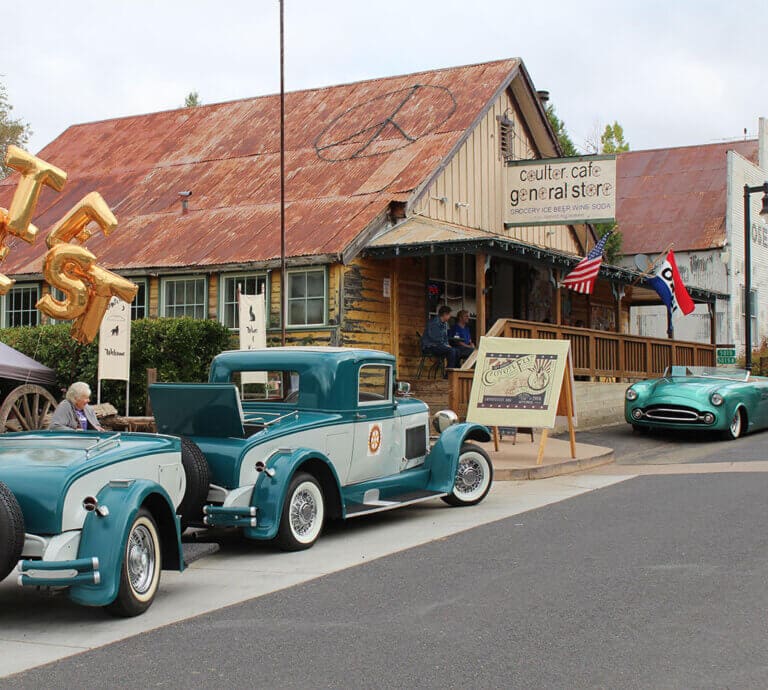
With its foodie brunches on weekends and live music on the outdoor patio in summer, Coulter Cafe & General Store is the heart & soul of Coulterville hospitality. You’ll see locals wave to the staff as they walk by as you enjoy a range of fare from burgers to beignets. The Cakewalk Heirloom Baking Company is an organic French cafe & patisserie serving baked goods and coffee for breakfast, plus lunch delights such as the Farmhouse Meatloaf Sandwich and the vegetarian Hipster on stuffed whole-wheat flat bread.
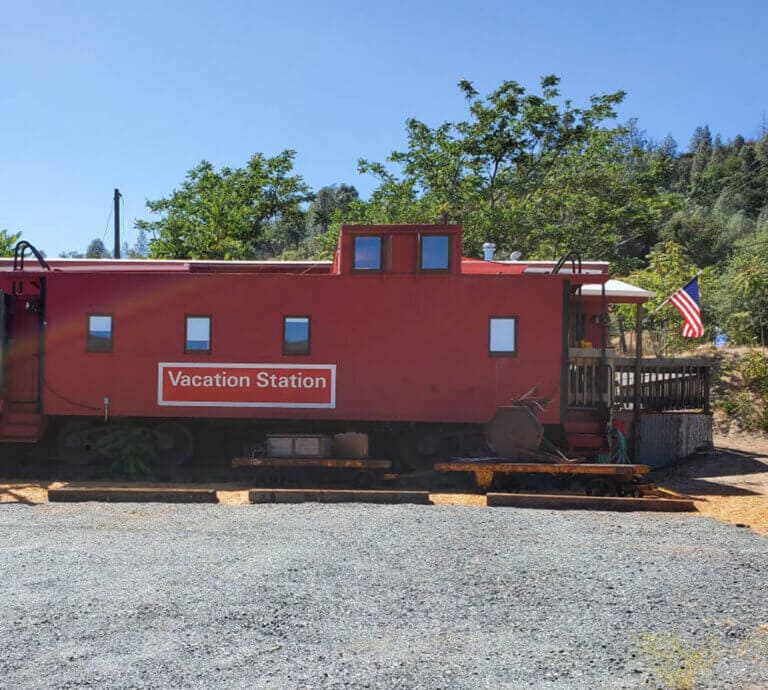
Lodging in Coulterville is as quirky as the town itself. The Vacation Station is a lovingly reappointed 1964 Boxcar with kitchenette and living area, while the studio Caboose features what’s known to train buffs as a cupola — a raised seating area where guests can enjoy their cuppa coffee. What was once the Gold Country’s prized historic hotel, the Hotel Jeffery, is currently being renovated as the Hotel Bluey.
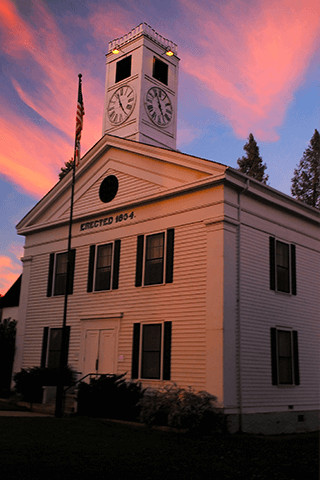
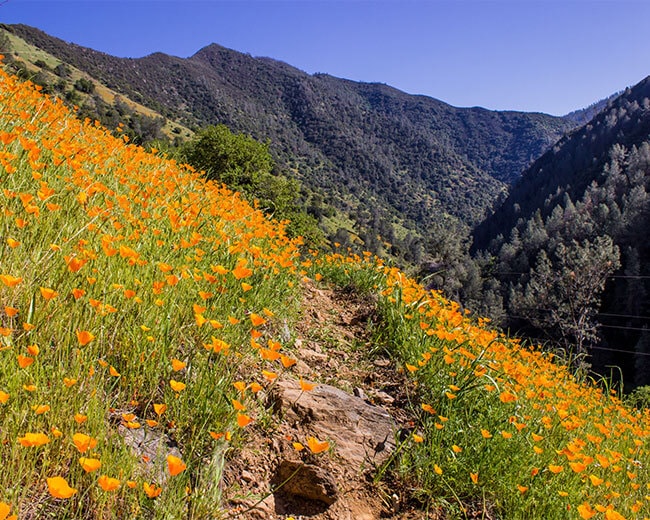
River Arts & Humanities
Rising higher up the Sierra steppes, your second day effortlessly blends “city” life and rough-hewn landscapes. Stroll through old town Mariposa — the food & culture center of the county — then explore the banks of the Merced River Canyon with its hiking, whitewater rafting and picnicking.
Mariposa
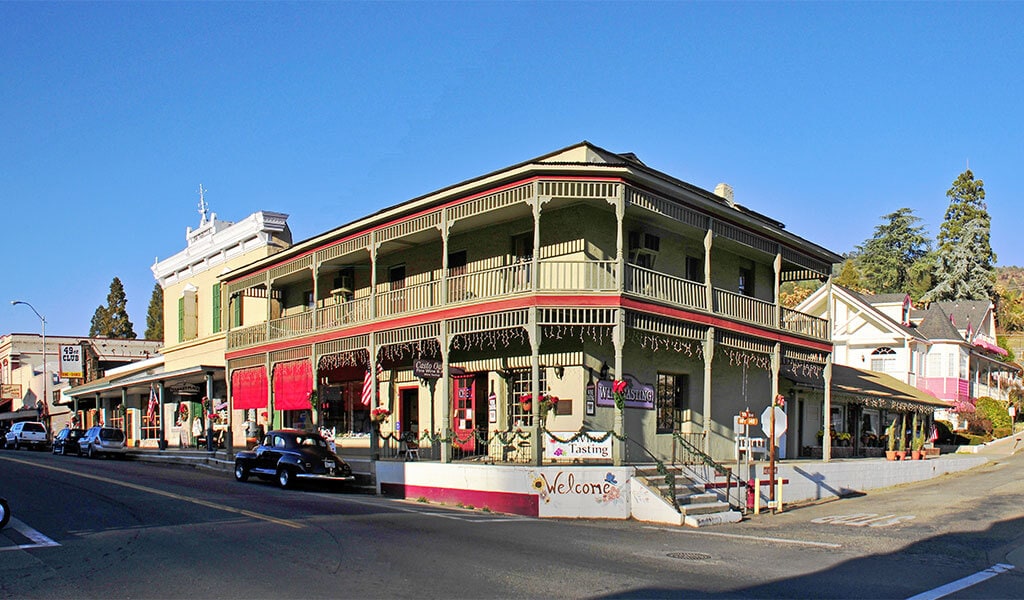
With its authentic Gold Rush history, vibrant food scene, and culture in spades, the town of Mariposa is the undisputed wagon wheel hub of your three-day adventure. Set at 1,949 feet, it’s a working city and not some Western facade, with residents as colorful as they are friendly. In fact, Mariposa was voted #2 in the Country for Best Small Town Culture Scene by USA Today. Tip of the Stetson for an award well-deserved!
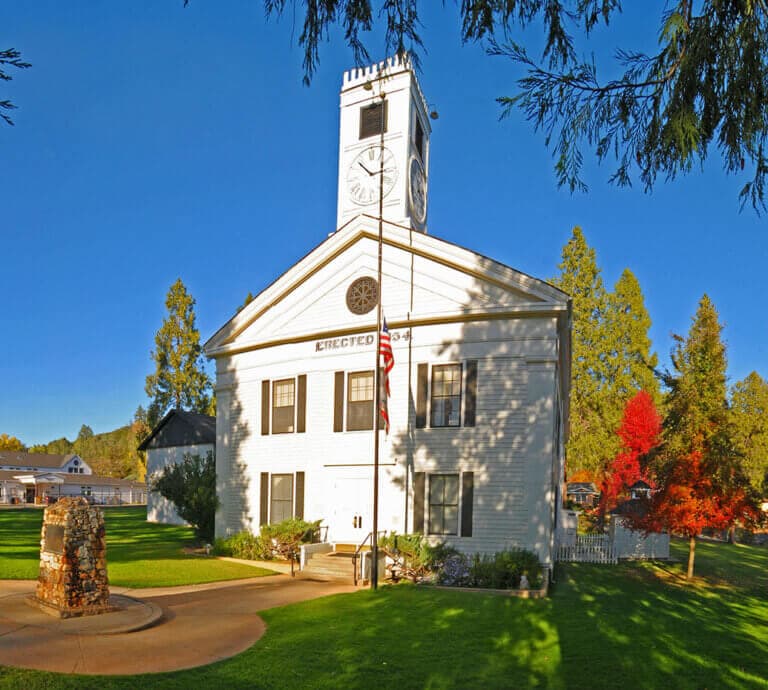
A half-hour is all it takes to walk the Mariposa Mile, which covers the length of this historic town’s main street. Pace yourself and check out the 19th century Mariposa Jail — hewn from 24-inch granite blocks — and the Mariposa County Courthouse (1854) — the oldest Superior Courthouse still in use west of the Rockies. Sometimes visitors prefer a little indoor time, and three Mariposa museums spark the imagination on subjects ranging from mountain climbing to mining history and Miwuk culture. Shopping in Mariposa for everything from vintage clothes to home decor and art galleries is sure to provide some retail R&R, all while supporting hard-working local businesses.
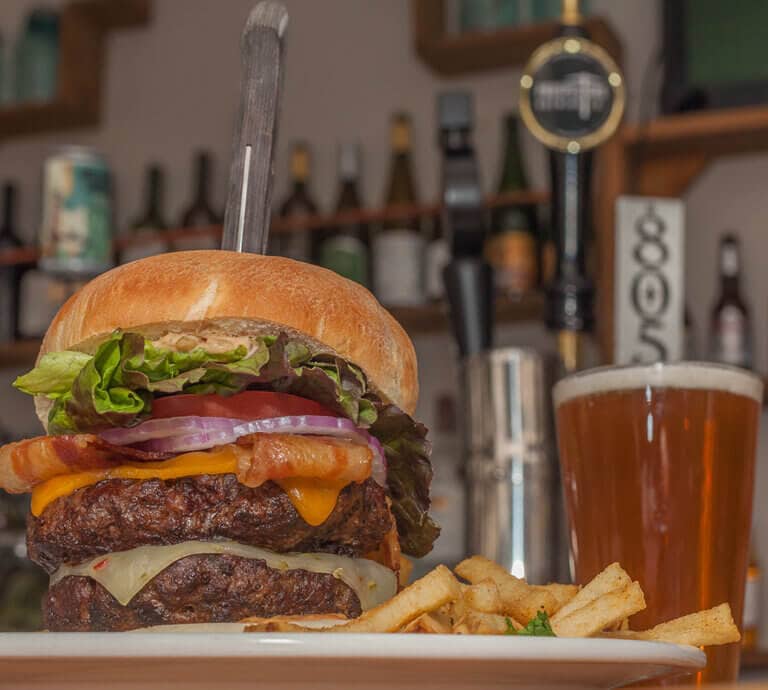
With forks at the ready, the culinary scene in Mariposa is a big part of its national status for small town culture. Dueling lattes, barbecue battles and nightcap encounters create lots of options for hungry visitors whether that’s breakfast, brunch, lunch or dinner. Check out all the delicious courses to find just what you’re craving.
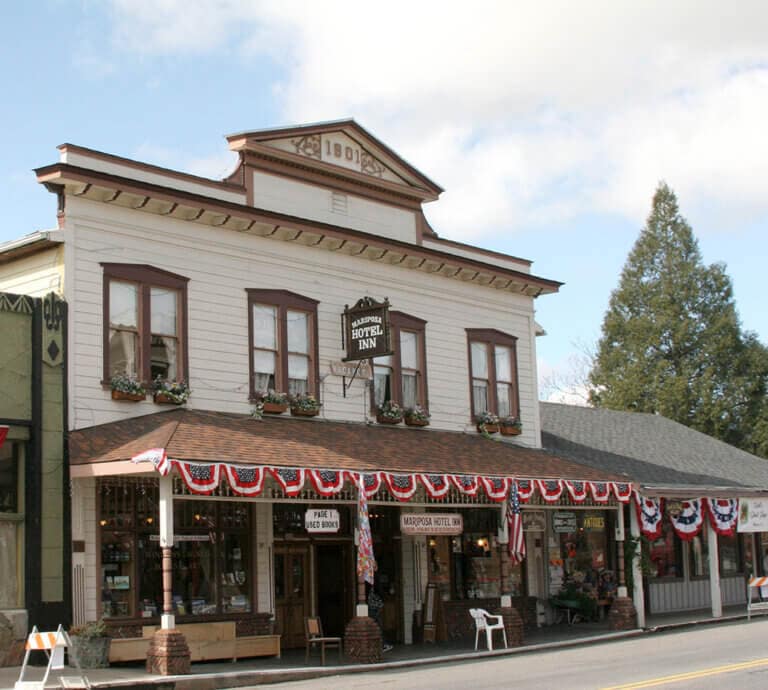
The town of Mariposa offers the widest range of accommodations, from historic B&B’s to cozy inns and clean, affordable hotels. The competition means there are often lodging deals to be had, especially in shoulder seasons and midweek. The best part about staying in town? All of Mariposa’s attractions are just outside your door.
Midpines/ Merced River Canyon
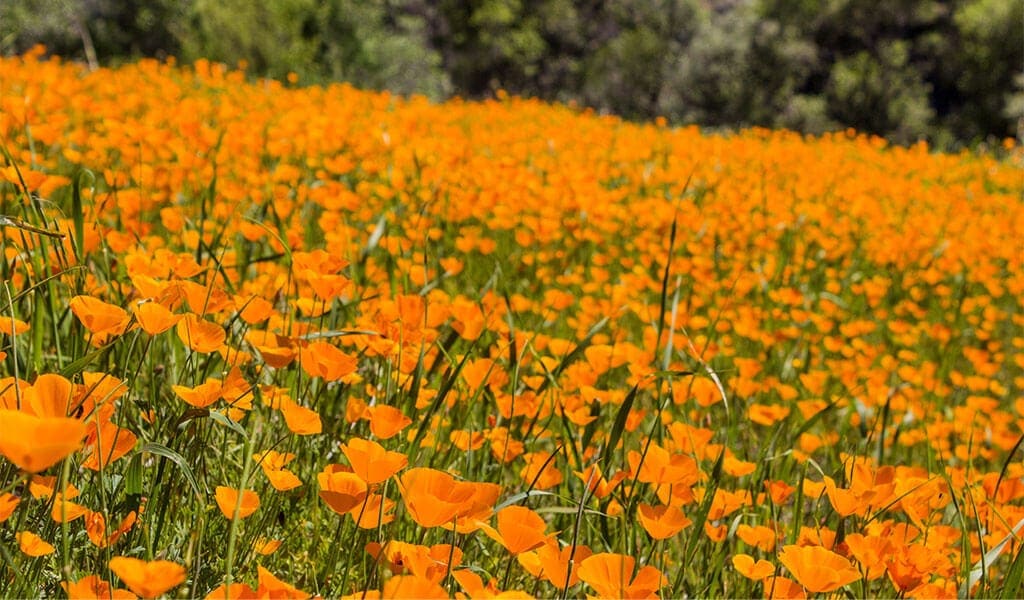
Just 10 minutes uphill from Mariposa sits the town of Midpines. Perched at 2,585 feet, this peaceful Sierra oasis emerged with the building of All Season Highway 140, while the surrounding area is rooted in Miwuk history and hardscrabble mining claims. Another 10 minutes farther along — at the in iconic suspension bridge in Briceburg — is where the rugged Merced River Canyon begins its climb to Yosemite National Park. Here, the sound of rushing water provides a soundtrack with tempo.
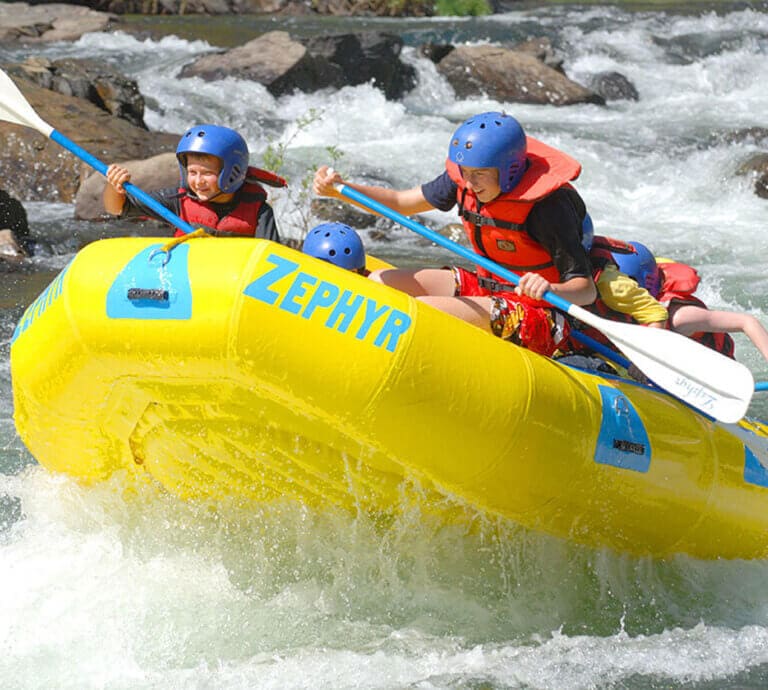
From wildflower walks and whitewater rafting in spring, to riverside hikes and picnics any ol’ time of year, the hustle & flow of the Merced River is the recreational focal point in this unique terrain. For those visitors who just like to look out the window on a pleasant drive, we got you covered. The steep canyon walls are sure to inspire conversation and prompt a refrain of “wow, look at that!”
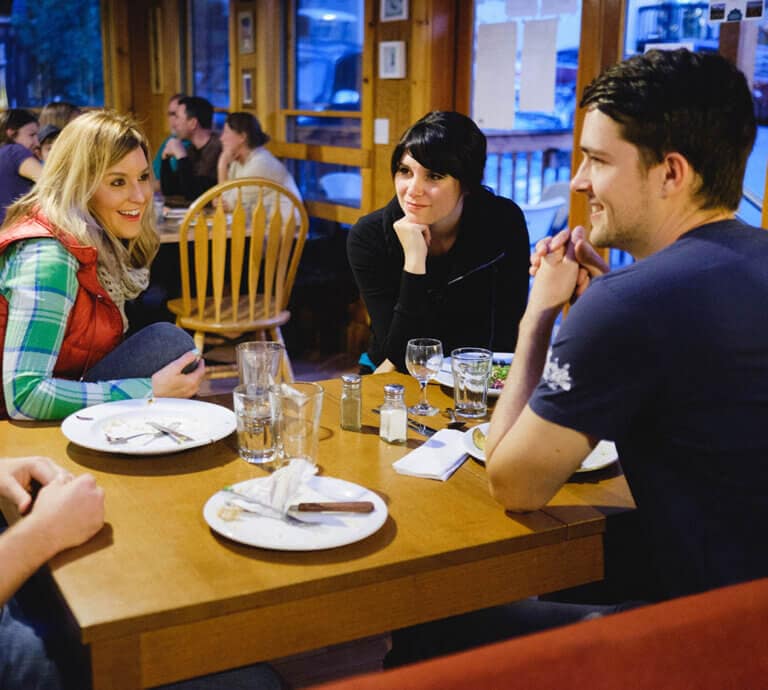
A hidden gem of dining in Midpines is the June Bug Cafe. On-site at the Yosemite Bug Rustic Mountain Lodge (see below), this casual eatery features such internationally-inspired dishes as chipotle rubbed pork chops, wild gulf shrimp in drunken noodles and smoked tempeh. If you don’t have time for a big, satisfying meal, the June Bug Cafe pulls double-duty for beer and lively chatter. Open breakfast, lunch and dinner, they even offer Trail Lunches to-go that are definitely picnic-approved.
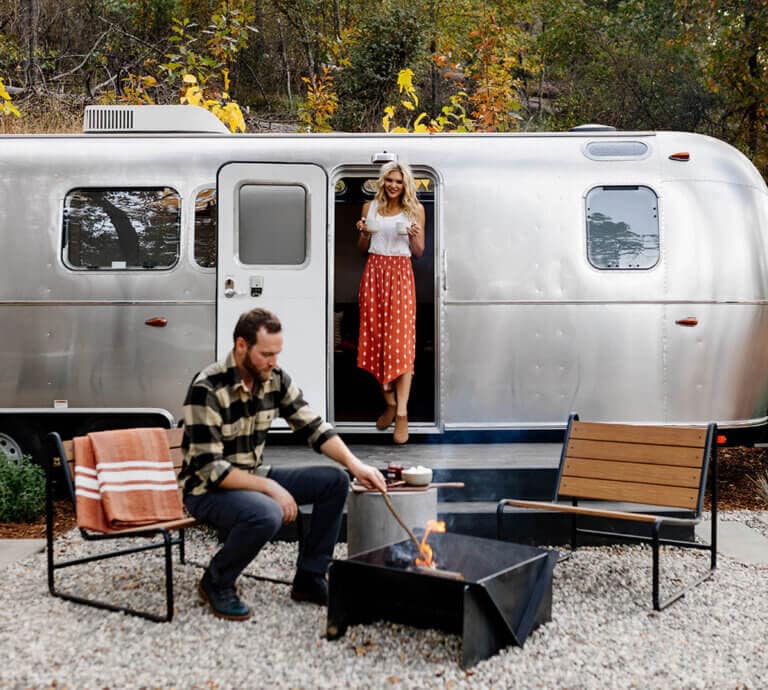
Lodging in Midpines falls squarely into the “unique” category when it comes to AutoCamp Yosemite and its armada of shiny Airstream trailers. Featuring on-site yoga, a variety of “experiences” and live music around outdoor fire pits, this “campground” gives visitors a taste of van life the easy way. The aforementioned Yosemite Bug Rustic Mountain Resort has a magical, woodsy vibe with room options from hostel-style bunks to private cabins spread out along the hillside. Wellness seekers don’t have to search far — the Yosemite Health Spa is on-site and ready to pamper. Midpines also offers over 30 vacation rentals perfectly suited to your group’s size and needs.
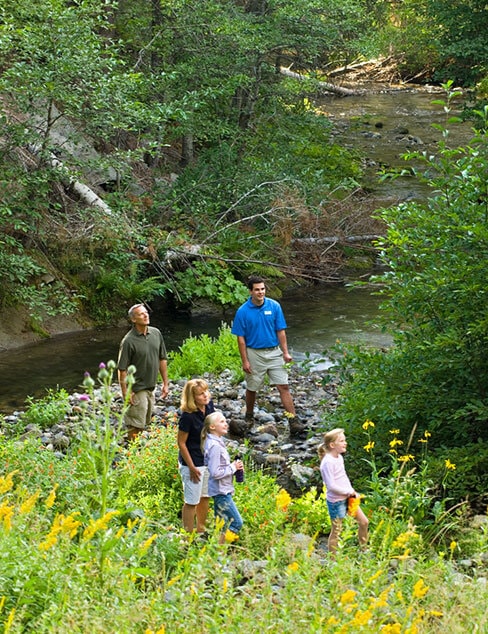
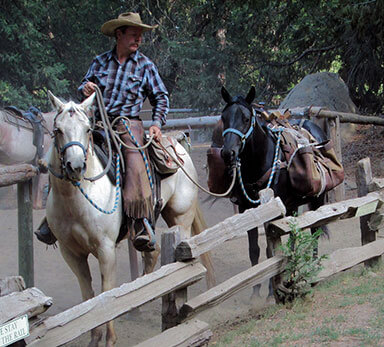
Forest Remedy
Day three climbs even higher into the pine-scented sanctuary of the Sierra National Forest. Combining world-class resorts with secluded hiking, biking and horseback riding, this elevated retreat is sure to inspire aaaah’s whether that’s in the spa or in the woods.
Fish Camp
Surrounded by the Sierra National Forest at an elevation of 5,062 feet, the historic enclave of Fish Camp is a well-deserved retreat where the woodland vibes simply hum. The Miwuk once used this area as a fishing and trading area followed by 19th century logging operations that ran flumes down the western slope of the Sierra to the Central Valley. In 1893 the Sierra Forest Reserve was designated as protected land, and Fish Camp became the southern gateway to Yosemite National Park.
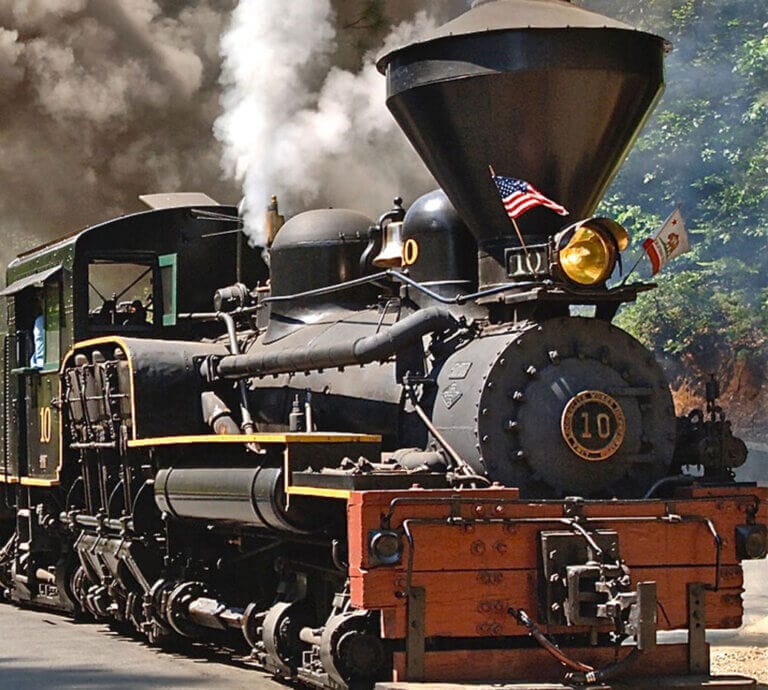
Fish Camp’s super-power is how many activities can be enjoyed nearby. Just 3 miles north along Hwy 41 is the Mariposa Grove of Giant Sequoias, a world-famous gathering of massive forest elders ($35 Yosemite entrance fee required). There’s nothing like channeling your inner-cowpoke, and Yosemite Trails Horseback Adventures obliges intrepid pard’ners seasonally beginning every May. If iron horses are more your style, then Yosemite Mountain Sugar Pine Railroad offers family-ready tours on their vintage steam trains (April-October).
The forest around Tenaya at Yosemite plays host to any number of outdoor pursuits. Try the short, gentle Tenaya Loop Trail with its meditative benches and creekside whispers. Biking or hiking Jackson Road (aka Big Sandy Road) and the network of unpaved forest service roads gives visitors lots of options for their preferred distance & difficulty (mountain bike rentals available at the Tenaya spring through fall).
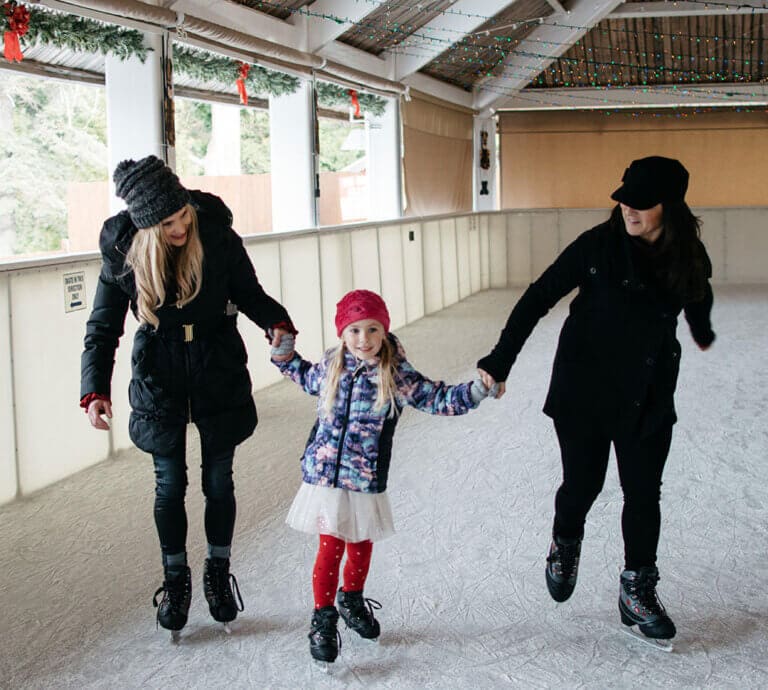
Fish Camp sports a couple of frosty gems in the winter months. Goat Meadow Snow Play Area is just 3 miles away for sledding, cross-country skiing and, of course, the obligatory snowball fight. Ice Skating at Tenaya at Yosemite gets high marks from the judges for its covered, outdoor rink and nearby fire pits. Note: For all winter sports be sure to check snow depth/weather conditions and wear your warm, waterproof layers!
And just because we can lose sight of the forest for the trees, fishing is always popular in Fish Camp along Big Creek.
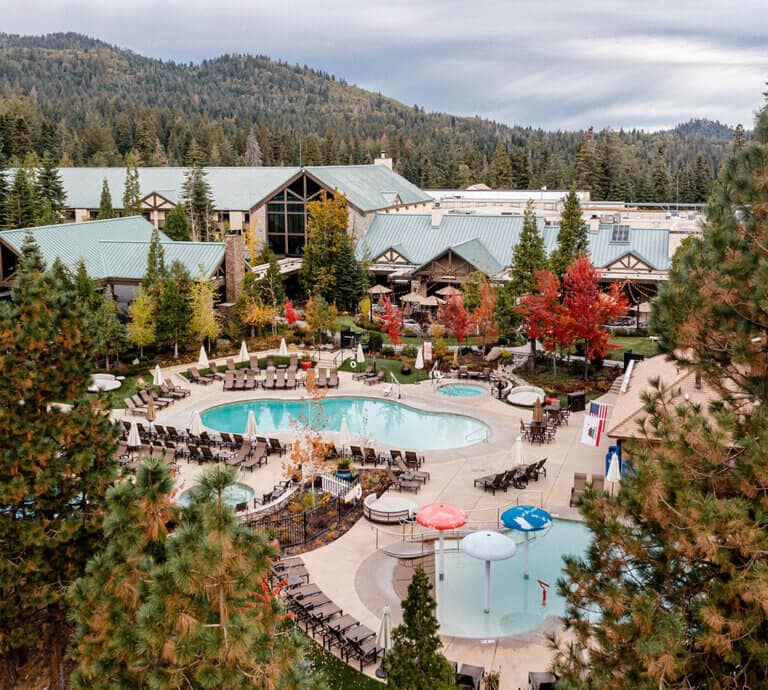
For world-class amenities such as spa treatments, tasty dining and tour services, Tenaya at Yosemite is a sylvan oasis. Its comfortable accommodations range from rooms to suites and Explorer cabins, with the wonders of Mariposa County just outside your door. Summerdale Campground gets visitors in touch with surrounding beauty. Fish Camp vacation rentals provide flexibility when it comes to preparing your own meals and special gatherings, be that families or groups of friends.
Extra Credit
- Mariposa County events such as the Butterfly Festival, Dia De Los Muertos and CoyoteFest are always a great way to meet locals and enjoy its vibrant, small-town culture.
- Check out our special offers and take it easy on your pocketbook as you unwind in Mariposa County. There are so many ways to experience Yosemite on a budget for travelers.
- Turn your getaway into a mini-vacation by leaving Thursday night so you can have a full day of exploration on Friday. Or flip that around and return Monday morning so you can live your best Mariposa life on Sunday!

